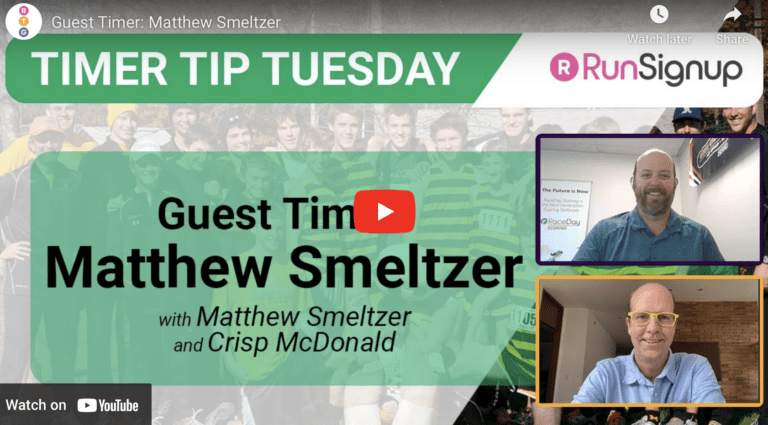Guest Timer: Matt Smeltzer from Competitive Timing
Sharing Insights for Building a Successful Timer Business
In this recorded webinar, we welcome Matt Smeltzer, founder of Competitive Timing, a Montana-based company that offers timing and other services for events, including rentals, arches, finish lines, personalized apps, and participant tracking. Matt shares the key factors that enabled his company to expand from managing 10 races to over 300. He suggests saying yes (most of the time), investing money to make money, and trusting others are among the essential strategies that helped him succeed. He also discusses some of the mistakes he made along the way.
Matt explains that the job of a timer presents two significant challenges, including extensive travel, which could mean being away from home for extended periods, and the technical nature of the work. To help new hires understand these challenges, he recommends that they communicate with multiple team members to get a clear understanding of the job. Additionally, he suggests giving prospective hires technical tasks to complete during the interview process to determine if they possess the required skills and interest. Matt also strives to distribute travel time equitably among timers and allows them to choose what works best for them.
Next, Matt discusses the four major players in race timing: Race Result, MyLaps, Ipico, and Chronotrack. He suggests that new timers should focus on one of these systems rather than a DIY (Do It Yourself) system because they provide good middleware and minimize technical issues. Although DIY systems offer cheaper chips, they require significant technical knowledge to construct and maintain, which can divert timers from managing the race.
Matt also covers the remote timing application that his company employs, which is becoming increasingly popular among timers. This application is particularly useful for small events where the cost of on-site timing is too high. Their approach for remote timing involves providing race directors with decoder mats, cables, and stacks of bibs with chips, and instructing them on how to connect the equipment and turn it on. Matt’s company then connects to the system from wherever they are and scores the race.
Finally, Matt emphasizes the significance of personal touch in building relationships and retaining customers while utilizing the various tools and features of RunSignUp. These include the check-in app, dynamic bid assignment, and QR code scanning for bib assignment. He also praises the customizability and flexibility of RaceDay Scoring, which Competitive Timing has used for timing 100 of their races.
If you’re interested in learning more, watch the recording above to gain valuable insights and tips on running a successful timer business.
